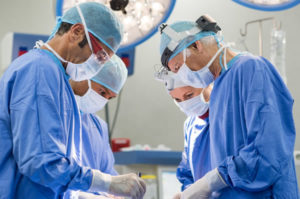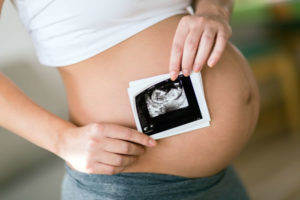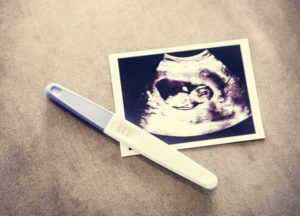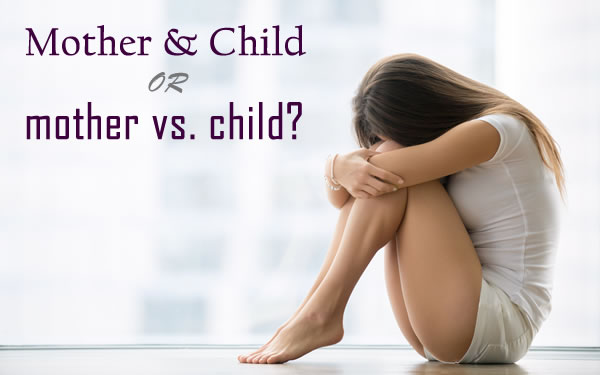The battle-lines
Over the years, I have found abortion to be by far the most divisive and heated moral, legal and political issue of all. Perhaps this is not remarkable. Euthanasia is also divisive, reminding us that matters of life and death have always been regarded as significant. In fact, to say “It’s a matter of life and death!” is a familiar way of indicating just how important an issue is.
Of course, the heat of the abortion issue is also due to the fact that many women feel that women have been imposed upon by a man-led system for a very long time and that any prohibition of abortion is one of the most intrusive impositions of all.
 We wouldn’t need to discuss abortion if a pregnant woman were the only person involved in the procedure. If the embryo or foetus were just a “mass” – say, a tumour or infected tissue – out it would go as soon as possible, no questions asked. However, as soon as it becomes apparent, or even just possible, that the woman is not the only person involved, the scenario changes entirely and the subject must be paused for consideration.
We wouldn’t need to discuss abortion if a pregnant woman were the only person involved in the procedure. If the embryo or foetus were just a “mass” – say, a tumour or infected tissue – out it would go as soon as possible, no questions asked. However, as soon as it becomes apparent, or even just possible, that the woman is not the only person involved, the scenario changes entirely and the subject must be paused for consideration.
I’ve been on the Pro-life side of the fence for some time, though not a signed-up member of any organisation. A while back, I came to realise that the focus of the Pro-life movement was too narrow. It tended to be so preoccupied with the issue of killing the human embryo/foetus that it ignored other considerations. I can’t think of anything more significant than killing an innocent human being, but there is still more to the abortion issue than this. In particular, there is the pregnant woman (or girl), another human being no less important than her unborn child.
Coming at this from a Christian perspective and what I think is the preferred secular perspective, I say that the Pro-life movement and the community generally owe the pregnant woman love, and there is a great deal more to love than judging, even you manage to judge correctly.
For some time, the battle-lines were drawn between one side that promoted the interests of the unborn child with little or no regard to the woman, unless her life was threatened, and the other side that promoted the interests of the woman with no regard to the unborn child. We all took a side.
 I’m relieved that the Pro-life movement no longer sees itself playing a partisan role in a zero-sum game. It has realised that the woman and child are each infinitely precious and that the community’s role is to protect and support them both.
I’m relieved that the Pro-life movement no longer sees itself playing a partisan role in a zero-sum game. It has realised that the woman and child are each infinitely precious and that the community’s role is to protect and support them both.
As far as I can tell, the Pro-choice movement shows no corresponding sign of maturing: it remains steadfastly dedicated to promoting the interests of the woman without regard to the unborn child. In fact, the unborn child is seldom mentioned – is, rather, the subject of a silent but determined denialism. It has become the tiny “elephant in the room” in abortion discourse.
I see this denialism as the main reason why it is so difficult to converse with Pro-choice advocates. For a discussion to be potentially fruitful, there usually needs to be a shared understanding about who is involved in the issue under discussion. Perhaps the Pro-choicers are genuinely afraid that the pregnant woman will be sacrificed or overlooked for the sake of the child, which would be unfair. If so, their minds need to be put at ease about this: the woman matters just as much as the child does. Of course, although discussion with Pro-choice is very difficult, we should always be willing to attempt it.
“Health issue” and the human being
Rebranding abortion as a ‘health issue’ is the latest attempt to avoid recognising that there are, or might be, two people involved and not just one. According to this view, the unborn child is just a “mass” so that the woman is the only person involved.
My impression is that Pro-choicers see the health sector as a refuge from moral responsibility, another “safe space”, in which the moral character of the decision to terminate does not arise. Indeed, a place in which the woman presents as a patient – not necessarily a victim, but still someone who is needy and an object of sympathy and tenderness, someone frequently asked “Are you comfortable?”. A space in which moral abdication is permitted. It is unfortunate that a significant proportion of the community likes to resort to such a “space”, for one reason or another.
I suspect that refuge in the health sector is sought because questions about the unborn child have proved awkward and “uncomfortable” for Pro-choicers: after all, it is always tempting to avoid feelings of guilt or even misgivings about possible guilt. Arguments that the unborn child is not a human being, and not even a potential human being in any significant sense, have not fared well.
 Pro-choice usually try to justify abortions by constricting the definition of “human being” – for example, by saying the embryo/foetus must have a heartbeat, or lung function, or brain function, or even awareness, before claiming the coveted title. This approach exposes Pro-choicers to the problem that many children and adults are occasionally without these functions and capacities for a time, relying on drugs or machinery, and yet we still regard them as human beings. Even when life-support is turned off, it is seen as having supported the life of a human being.
Pro-choice usually try to justify abortions by constricting the definition of “human being” – for example, by saying the embryo/foetus must have a heartbeat, or lung function, or brain function, or even awareness, before claiming the coveted title. This approach exposes Pro-choicers to the problem that many children and adults are occasionally without these functions and capacities for a time, relying on drugs or machinery, and yet we still regard them as human beings. Even when life-support is turned off, it is seen as having supported the life of a human being.
When a person is deliberately killed, even with justification, they are usually given the courtesy of being acknowledged as a person, and the killing is regarded as morally significant – as justified in spite of the fact that a human being is killed. This is true in all situations (including war, capital punishment, euthanasia) except abortion, which has been placed in a kind of moral blind-spot by those promoting it.
A minority of Pro-choicers are more honest about abortion – recognising what it involves but justifying it in the interests of population control. It’s a poor rationale, even in number-crunching terms, as abortion on demand clearly won’t end the world’s population crisis. Those who wish to cull the human race will have to look elsewhere – euthanasia, I suppose, especially by extending “eligibility”. That may not be sufficient either, so we should perhaps regard a cull as not the best approach to managing population and as a shabby justification for abortion.
Returning to the denialism of the majority, I would be surprised if an open discussion about the status of the embryo/foetus produced resolution. We are more likely to be left with a dilemma: As we don’t “know” (or can’t agree) about the status of the embryo/foetus, we will have to decide on which side to err.
Do we err on the side of including it in the “human being” category or on the side of excluding it? Which is the better error?
I suggest that, as a matter of principle, we should err on the side of being generous about this, if only because of the awful consequences of the opposite error. Throughout history, the device of “dehumanising” some group of people or other – women, non-whites, slaves, enemies – has been used for great evil and has done great harm. Let’s not repeat it. It may not be long before clones want access to the category of human being, and also the products of AI will have to be considered (for “person”, at least, if not “human being”). Already, a river or two has been given the deemed status of legal “person” in New Zealand legislation. It seems strange to include all these in the Human or Person category, while a naturally generated human embryo/foetus continues to be excluded.
And why is it excluded? Because it is not wanted, nothing more than that.
It makes very good sense to focus on conception as the time when a human comes into being:
- The DNA – the blueprint of a brand new, extremely complex and unique person – is already in place, along with all the building materials. It’s not like any other blueprint or design: construction is underway, nothing has to be done but watch and wait.
- Later stages of development seem arbitrary and, as mentioned above, have terrible ramifications for other people.
- From a hypothetically neutral point-of-view, this is the better “error” in an environment of uncertainty.
 Whatever the status of the embryo/foetus while in utero, there is also the argument about it being a potential human life. Even this is resisted by Pro-choice, though it seems to me that to argue against the human potential of the “mass” is barely even sincere. After all, the only reason the embryo/foetus is terminated is because of its potential to develop into an obvious human being.
Whatever the status of the embryo/foetus while in utero, there is also the argument about it being a potential human life. Even this is resisted by Pro-choice, though it seems to me that to argue against the human potential of the “mass” is barely even sincere. After all, the only reason the embryo/foetus is terminated is because of its potential to develop into an obvious human being.
The sooner we all come to an understanding about the embryo/foetus, the sooner we can plan for what happens to the child once born and how to support the woman (if she needs support) in the meantime. Of course, she can adopt the child out: there is a ready market of couples who are struggling with IVF or with adopting overseas. Beforehand, the community’s focus should be on the well-being of the pregnant woman or girl because some are in dire straits, sometimes through no fault of their own.
I shouldn’t close without saying something about the “backyard abortion” argument and the scenario in which the pregnancy is the result of rape or incest.
The “backyard abortion”
It is true that an abortion performed in unhygienic circumstances by someone who is not a highly trained professional is dangerous to the pregnant woman.
However, I would say this risk of harm to a woman from a backyard abortion is not relevant to the issue of abortion on demand.
When abortion is legally available on demand, the pregnant woman who wishes to terminate the embryo/foetus asks the Government to help her do it in a way that makes things safe for her, so only the embryo/foetus dies. If the embryo/foetus is just a mass, no problem, the request is morally neutral. However, if the embryo/foetus is a human being, or at least “human enough” to be worth protecting, the request made of the Government is very different as it now has a significant moral component.
It is perhaps easier to make the point by analogy. Consider this reasoning:
- Person A intends to kill Person B;
- in fact, A is definitely going to kill B, no matter what;
- this inevitable killing would be safer for A if A knew where B was at the appointed time (so A could surprise B with a bullet and not be shot in return);
- due to the availability of comprehensive surveillance, the State could tell A where B is at any given time;
- to ensure that only one person is killed, rather than two, the State should let A know where B is.
Who in their right mind would ask the State to do this?! The State is obliged to protect both A and B. The same is true when it comes to abortion.The backyard abortion is dramatic and emotive, but provides no justification for abortion on demand.
The worst scenarios
Surprisingly, the scenario in which the pregnant woman or girl was raped is a red herring. Not because it isn’t important: her plight is terrible to contemplate (or even attempt to contemplate). Rather, because Pro-choice introduce it into the discussion cynically.
I could imagine a compromise outcome being to allow abortion only in cases of rape, incest and, as now, risk to the life of the pregnant woman or girl. It would be a compromise, of course, not quite satisfactory to Pro-life but far better than abortion on demand. However, it turns out to be academic because, if ever this idea is put to Pro-choice, they say “No way, we want abortion on demand”. So, these terrible scenarios are actually not relevant to what must be decided, they are just introduced to manipulate the discussion.
Even so, it wouldn’t hurt Pro-lifers to be mindful of what some women and girls will have to endure if we had our way and abortion was generally prohibited. We should take the trouble to hear, if we can, a full account of the nightmarish 9 months that awaits someone who takes the product of a rape to term. And of what she endures afterwards: the rape may have long-term adverse effects and carrying the child to term might exacerbate these effects.
For all I know, a secular discussion (not premised on the infinitely precious status of a human life) might conclude that there is a certain degree of suffering that somehow outweighs the value of a human life. Once the embryo/foetus is recognised, perhaps that’s the terrible discussion that must take place.
Whether or not any such discussion takes place, I think we owe some empathic understanding to the women and girls concerned. Having said that, though, these terrible scenarios are not relevant to the topic of abortion on demand. They are only relevant to the possible compromise result, which Pro-choice will not accept. The Pro-life side might accept it (I don’t know) on the basis that it greatly reduces the number of abortions and therefore saves many lives.
Close
Returning to the main issue, we should make sure we promote the well-being of both mother and child. Pro-choice tries to present abortion as a zero-sum game and force everyone into taking sides. It is very important to resist this manipulation.
The real choice is between the following two ways of understanding the abortion issue:
-
-
- mother-and-child;
- mother-vs-child.
-









0 Comments